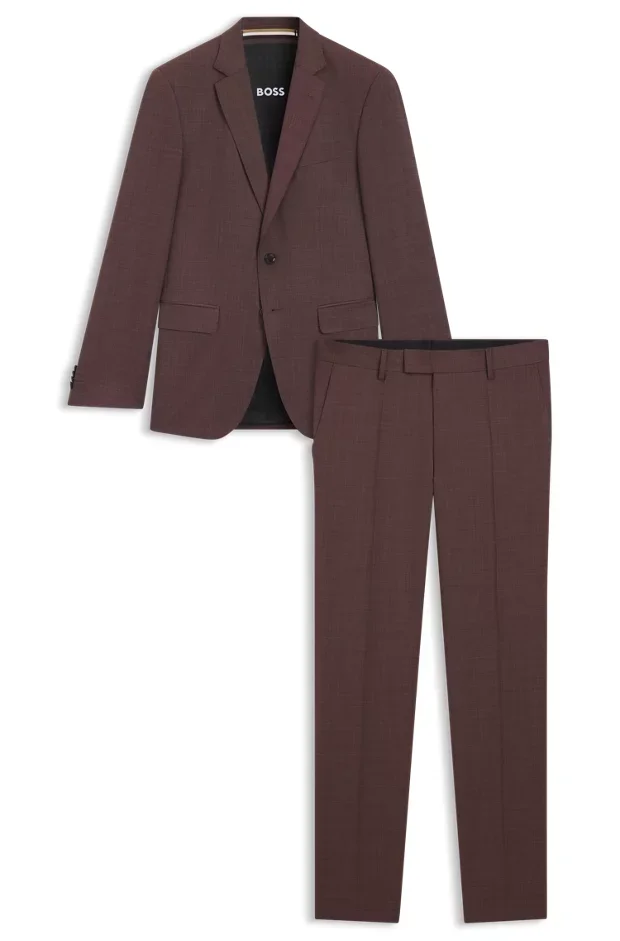Trending: Men’s Fall Suiting
This fall, the future of men’s suiting is getting a conscious upgrade. In 2025, sustainability isn’t a sideline; it’s the standard. Ethically sourced wools, regenerative cotton, and plant-dyed fabrics are replacing legacy textiles, while fluid tailoring and earth-rooted tones are rewriting the rules of formalwear. The modern man isn’t just dressing to impress; he’s dressing with intention. And the brands leading this shift? They're proving that style and sustainability aren't just compatible, they’re inseparable.
Here are some spotlight trends driving the ethical/eco-conscious shift in men’s suiting in 2025 and why it feels different this season:
Key Trends in Ethical Men’s Suiting (2025)
Innovative, Low‑Impact Materials:
Beyond organic cotton and recycled polyester, new fabrics are taking center stage, such as plant‑based dyes and mycelium (mushroom‑based) leathers or leather alternatives. Brands are also investing more in regenerative agriculture, especially for fibers like wool, cotton, and hemp. These practices improve soil health and carbon capture, while producing higher quality textiles.
Circularity & Longer Lifecycles:
Ethics in suiting are increasingly about what happens after you buy: take‑back programs, repair/alteration services, modular designs (replaceable parts, detachable linings, etc.).
Relaxed, Versatile Tailoring
There’s a shift away from rigid, highly formal suits toward styles that straddle the line between dressy and casual. Think: softer shoulders, less padding, more natural drape; trousers that are tapered or cropped rather than ultra‑slim; mixing pieces (wearing the blazer with jeans, or the trousers with knits).
Also, suits being styled without ties, or paired with less formal footwear and shirts; these preferences are all part of a move toward wearability and adaptability.
Color & Texture as Ethical Statements
Earthy, warm tones are in, a shift away from purely neutral grays and navies. These tones also pair well with natural dyes, which tend to perform better in those palettes.
Textures matter: raw and “unfinished” fabric surfaces, looser weaves, more tactile finishes, all of which reinforce the handcrafted or artisanal feel. Also, less reliance on heavy synthetics or chemically treated finishes.
Tech‑Assisted Fit & Ethical Manufacturing
Tailoring is becoming smarter: 3D scanning, AI measurement, virtual prototyping, digital patterning to reduce waste, etc. These help achieve a better fit (so people keep and wear the suiting longer) and reduce overproduction.
Ethical supply chains are being audited more rigorously, with certifications (B Corp, Fair Trade, GOTS etc.), and more communication back to the customer about what exactly “sustainable suiting” means for that brand.
The brands we love for your ethically made suits:
Flippa K - Uses mulesing‑free ethical wool, organic cotton; mills run using solar / renewable energy; water recycling.
Moss Bros - Their “Eco Suit” line includes suits made with organic linen, recycled materials; uses WRAP‑certified factories; fair manufacturing audits.
Hugo Boss (Yes – that Hugo Boss!) - Released a “wool‑free” vegan suit in 2025: made with organic linen, certified vegan, PETA‑approved.
Sartoro - Made‑to‑order model (reducing overproduction); emphasis on minimizing waste; smaller startup with more control over fabric sourcing.
Here are a few of our favorite fall options featuring the 2025 autumn color - Mocha Mousse that can be worn with complementary colors: poppy red, fern green, plum, or midnight blue.
Fall wear never looked so eco-luxe!



